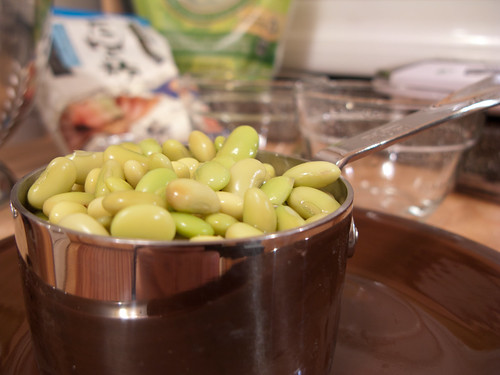Welcome to Word Buzz Wednesday, the scary edition! In our latest roundup of interesting words: a not-so-simple definition, your newest amphibious band name, a “chalant” nonchalance.
nationalist
“During a rally Monday night in Texas, President Donald Trump used a word he had never before uttered publicly to describe himself: nationalist.”
Doug Criss, “The definition of a nationalist,” CNN, October 23, 2018
While the definitions of nationalist and nationalism at face value may not seem controversial, there’s no denying their incendiary implications. The original definition of a nationalist, says CNN, is an advocate of nationalism, which refers to “the devotion and loyalty to one’s own country.” However, by the first half of the 20th century, it became “associated with the nationalism movements in Europe that helped lead to World War I and World War II,” and is now “often associated with the far-right, racist ideologies of white nationalists.”
But not everyone sees the term that way. A former senior adviser to Brexit leader Nigel Farage told CNN that nationalism “is a philosophy based around either the nation state, what we know colloquially as ‘countries,’ or around another identity factor, which could be religion, ethnicity, geography or even interests,” and that President Trump is “no doubt using the word to outline his belief in a nation of people unified by beliefs, interests and a common history.”
birthright citizenship
“President Donald Trump is trying to follow through on one of his campaign promises by ending birthright citizenship, a 150-year-old law established in the Constitution that grants U.S. citizenship to anybody born on U.S. soil.”
Alan Gomez, “US birthright citizenship explained: What is it, how many people benefit,” USA Today, October 30, 2018
During his presidential campaign, President Trump pitched the idea of abolishing birthright citizenship for the children of undocumented immigrants, says The New York Times, and is now bringing it up again “days before midterm congressional elections.”
So what exactly is birthright citizenship? It’s the “principle that anybody born on U.S. soil becomes a U.S. citizen,” says USA Today. It “was added to the Constitution in 1868 in the first sentence of the 14th Amendment, which reads: ‘All persons born or naturalized in the United States, and subject to the jurisdiction thereof, are citizens of the United States and of the State wherein they reside,’” and was created “to grant citizenship to freed slaves after the Civil War.” Since then it “has become a bedrock of U.S. immigration law that has allowed anybody born in the U.S. to become citizens.”
As for President Trump’s claim that the U.S. is the only country in the world to grant birthright citizenship, it’s untrue: at least 30 other countries grant it, according to the Center for Immigration Studies. Finally, for the record, the president can’t undo an amendment with an executive order. Says House Speaker Paul Ryan: “It would involve a very, very lengthy constitutional process.”
carnivore morph
“These tadpoles become what’s known as a carnivore morph, ‘a much bigger tadpole’ with ‘much bigger mouthparts,’ says Greg Pauly, curator of herpetology at the Natural History Museum of Los Angeles County.”
Liz Langley, “Neither cute nor cuddly: These animal babies are wee monsters,” National Geographic, October 26, 2018
Your newest band name is here. Some tadpoles of the spadefoot toad begin as omnivores, says National Geographic. That is, an animal that eats both plants and meat. However, once it gets a taste of flesh, it becomes a carnivore morph, avoiding plants and sticking to “fairy shrimp, its toad cousins, and sometimes its own species.”
moulage
“It’s called moulage, the art applying mock injuries through makeup, and staff uses the technique year-round.”
“Carilion staff practice frightful wounds ahead of Halloween,” WDBJ, October 30, 2018
The original meaning of moulage is “a mold, as of a footprint, made for use in a criminal investigation,” as well as the “making of such a mold or cast, as with plaster of Paris.” According to the Oxford English Dictionary (OED), the term comes from the French moulage, the act of molding something.
sprezzatura
“The trained observer sees sprezzatura as a sign that the individual has put in the work. The individual has attained such a level of mastery that he is able to conceal his movements and make difficult things look easy.”
Louis Chew, “The Key to the Effortless Cool Known as “‘Sprezzatura”’ Is Hard Work,” Quartzy, October 30, 2018
Sprezzatura, a kind of studied carelessness or nonchalance, seems to have been coined by 16th-century Italian courtier Baldassare Castiglione in his writing, The Book of the Courtier. The term first appeared in English in the 1950s, says the OED, and referred specifically to art: “The quality that the Italian critics called sprezzatura.”






